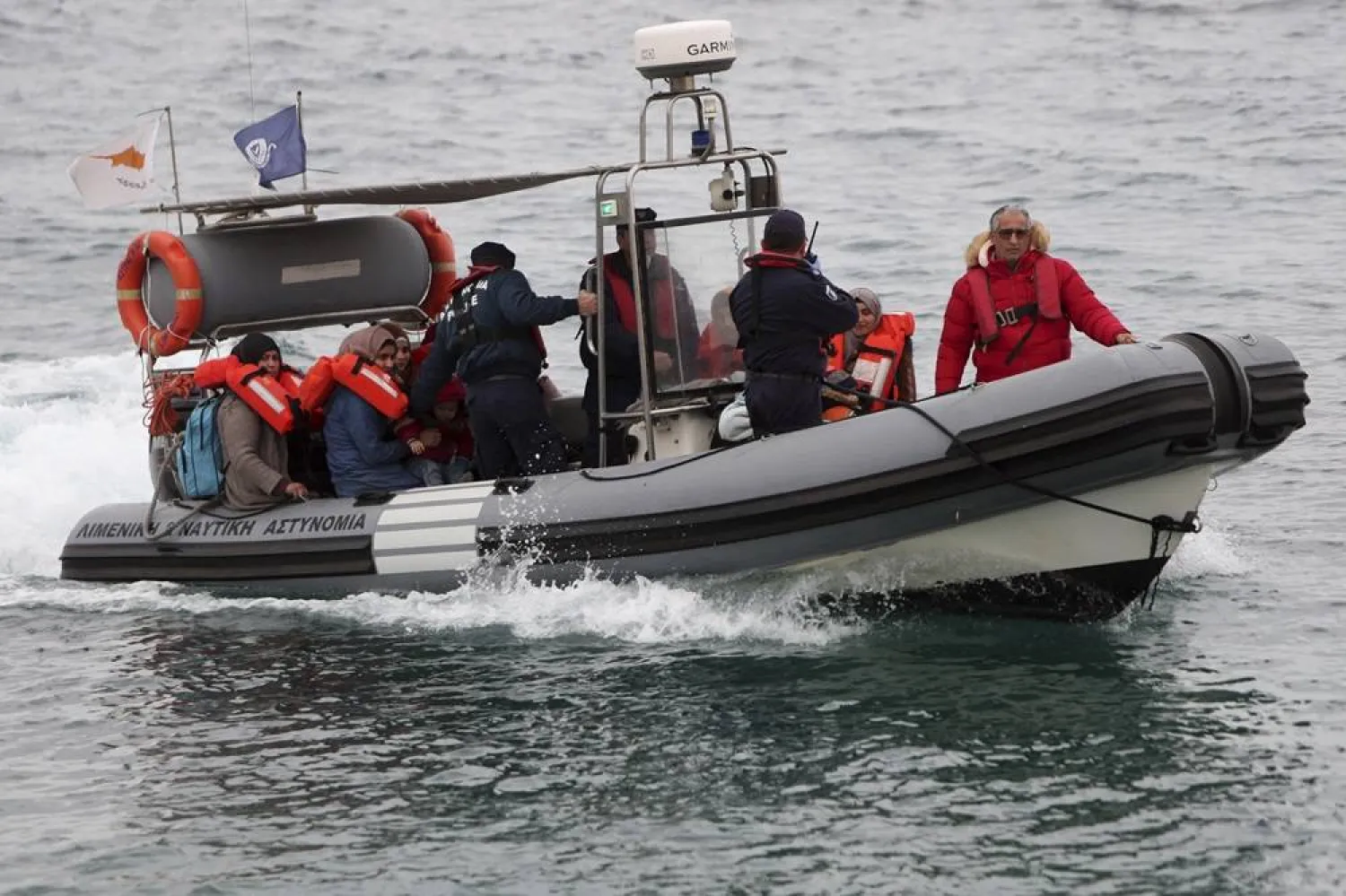The United Nations' refugee agency said Friday that Cypriot efforts at sea to stop numerous Syrian refugee-laden boats departing Lebanon from reaching the European Union-member island nation mustn’t contravene international human rights laws or put passengers at risk.
Cypriot authorities have reportedly dispatched police patrol vessels just outside Lebanese territorial waters to thwart boat loads of Syrian refugees from reaching the island about 110 miles (180 kilometers) away.
The Cypriot government says a crumbling Lebanese economy coupled with the uncertainty brought on by the Israeli-Hamas war and the recent tit-for-tat strikes between Israel and Lebanon has resulted in a huge number of rickety boats overloaded with migrants – almost all Syrians – reaching the island.
Earlier this week, Cypriot patrol craft reportedly intercepted five boats carrying hundreds of Syrian refugees and migrants. The boats turned back and the passengers disembarked safely.
UNCHR spokesperson in Cyprus Emilia Strovolidou told The Associated Press that according to testimonies of passengers’ relatives, Cypriot authorities “forcibly pushed back” the boats using “violence” and “techniques to destabilize the boat.”
Strovolidou said the UN agency was “not in a position to confirm” those testimonies.
A Cypriot senior official strenuously denied that any coercion was used in any way to get the boats to return to Lebanon, insisting that the Cypriot government doesn’t engage in any pushbacks and acts “fully in accordance with international law.”
The official, who spoke on condition of anonymity because he cannot disclose details of ongoing operations, dismissed as “lies” allegations that Cypriot authorities resorted to using any type of force.
Strovolidou said Cyprus is also bound by international law not to return individuals to any country which could in turn deport them to their homeland where they could be at risk of harm or persecution.
The Lebanon office of UNHCR said in a statement that it was aware of more than 220 people who had disembarked from the returned boats in northern Lebanon on Wednesday. Of those, 110 were refugees registered with UNHCR and all of them were released, it said.
Saadeddine Shatila, executive director of the Cedar Center for Legal Studies, a Lebanon-based human rights organization that tracks migration issues, said his group had information that the Lebanese army had detained and possibly deported Syrians from at least one of the returning boats who weren’t registered with UNCHR.
The Lebanese army has in the past occasionally deported all Syrians aboard seized migrant boats, including registered refugees, a practice that drew an outcry from human rights organizations.
Lebanese political officials have been calling for years for the international community to either resettle the refugees in other countries or assist in returning them to Syria, and security forces have stepped up deportations of Syrians over the past year. Some of the deportees have reportedly faced detention and torture upon their return.
The Cypriot official said the Cyprus government in coordination with the European Commission is preparing an additional financial support package for Lebanon to help the country stop migrant boat departures. He said that support is conditional on Lebanon’s effectiveness in stopping migrant boat departures.
Cypriot President Nikos Christodoulides and European Commission Chief Ursula von der Leyen are due in Beirut May 2 to discuss the aid package.
The official said people smugglers are exploiting people’s fears over the ongoing conflicts in the region and are brazenly advertising in Lebanese coffee shops available seats on boats to Cyprus for $3,000 a head – a bargain compared to the $7,000 required for a trip to Italy.
Cyprus will convene a meeting of other EU countries next month to elicit additional support for its initiative for the bloc to formally redesignate some areas of Syria as safe zones. The Czech Republic and Denmark are behind the idea.
According to the Cypriot official, doing so wouldn’t mean that Syrians hailing from those safe zones are deported back to their country, but they would lose any allowances, benefits and the right to work, creating a disincentive to others to come to Cyprus.
He said Denmark is already implementing such a policy on its own and it’s a measure that the Cypriot government could consider if arrivals continue to increase.









